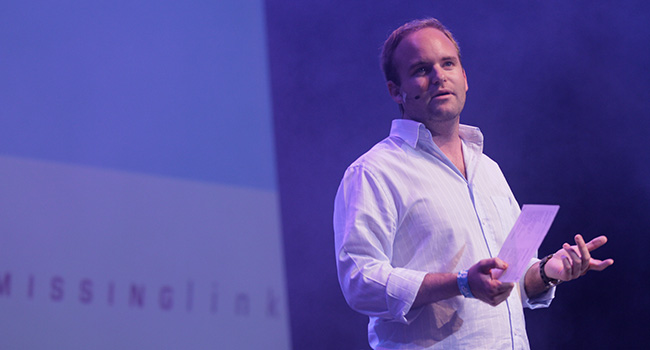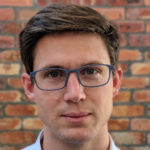South Africa’s esports scene is set for a major showdown as Hyprop and MTN introduce SHIFT COD, a Call of Duty tournament forming part…
Startup scene ‘absolutely exploded’ after Silicon Cape launch – Justin Stanford

Silicon Cape must continue to help trying to promote and grow Cape Town’s tech startup community and to represent the idea of startups in South Africa and the community, and act in its best interests in whatever way it can, says venture capitalist Justin Stanford.
Stanford (pictured above) founded Silicon Cape in 2009 together with tech entrepreneur Vinny Lingham to represent the city’s growing tech startup scene. He claims after the two launched the organisation the city’s tech scene “absolutely exploded”.
This week the organisation’s chairperson Sumarie Roodt told Ventureburn that the organisation will be carrying out a review of its strategy. It follows the resignation of Silicon Cape’s managing director Ellen Fischat and a top director Alexander Fraser from the organisation last month
Ventureburn asked Stanford in an email earlier this week what he reckoned the organisation has achieved since its inception and what it should be seeking to do going forward.
As a precursor Stanford pointed out the difficulty in identifying what Silicon Cape may have directly caused or indirectly caused, “as there’s no way to measure it”.
In nearly 10 years since its launch, the ecosystem has grown and changed so much that it’s actually quite incredible, says Silicon Cape’s Justin Stanford
“But you could say that regardless of its direct role or impact on achieving the original objective, that objective was ultimately so successfully achieved one way or another, that it has had to move on and really just focus on optimising granular issues these days. But it was setup to take on a big idea originally,” he said.
‘Scene has exploded’
Stanford said in the years before he and Lingham launched Silicon Cape the tech scene was a very different one.
“You have to consider the landscape in which it was launched — in the 2000s there was essentially no startup ecosystem or community at all locally,” he said.
When he started angel investing in 2004 no two startups even knew of each other’s existence.
“There was virtually no angel investing and venture capital. There was no press coverage. Nobody knew each other. There wasn’t much startup culture, the SA business culture at the time was fairly old school and one of keeping one’s cards close to your chest.”
This was all very different to what he and Lingham observed over in Silicon Valley (Lingham, originally from East London, is based there now).
“We saw a vibrant community with a very open culture with much collaboration and sharing, everybody knew each other, there was lots of airtime and coverage, lots of founders becoming angels and investing in the new class of founders.
“At that time Silicon Valley was considered completely dominant globally as the startup go-to location, and regional startup hubs basically didn’t exist, and weren’t really considered a viable notion going up against the Valley,” he said.
He said although some were already talking about it informally, Silicon Cape was launched to give a “firmer shape and form” to the idea of a Silicon Valley style ecosystem locally.
The idea he said was to showcase the city’s potential and to share the notion that growing a tech startup into a global company was possible and to create and catalyse a community and to give it an identity under which people could find each other.
“We wanted to help bring the best of the culture and values we saw in the Valley over. We wanted founders, investors, software developers, marketers, anyone interested in tech startups to find each other, learn from each other (as well as great international people that we could bring over), and make magic,” he said.
Stanford said after the two launched Silicon Cape things “absolutely exploded”. The concept became much bigger, much quicker than he and Lingham had imagined. At times up to a thousand people would attend events.
‘Changed so much’
“And in the nearly 10 years since its launch, the startup ecosystem has grown and changed so much that it’s actually quite incredible. It’s unrecognisable compared to what existed back then,” said Stanford.
“While we can’t really say to what extent Silicon Cape ultimately influenced that, and we remain humble in the intended goals, role and what we thought we could achieve, our premise proved correct, that the nascent potential was there in our home country and that a regional startup hub could be created, and that it would indeed spontaneously create itself — we just wanted to add some catalyst with some helpful nudges and initiatives, and spread the ideas,” he said.
Regulatory barriers remain
He believes the biggest obstacle to the startup ecosystem today is mostly regulatory, such as Exchange Control regulations that effect investment and venture capital.
But he said the organisation is now focused on optimising, as the ecosystem is well under way, “so the original objective has been more than achieved”.
“All they (the organisation) can do from here is continue to help trying to promote and grow the space, and work on removing obstacles (even more important in my view).”
Said Stanford: “So, I think focusing on these types of granular issues is the best thing that the body can do in terms of representing the best interests of the industry, which is what it was always there for — to represent the idea of startups in SA and the community, and act in its best interests in whatever way it can”.

